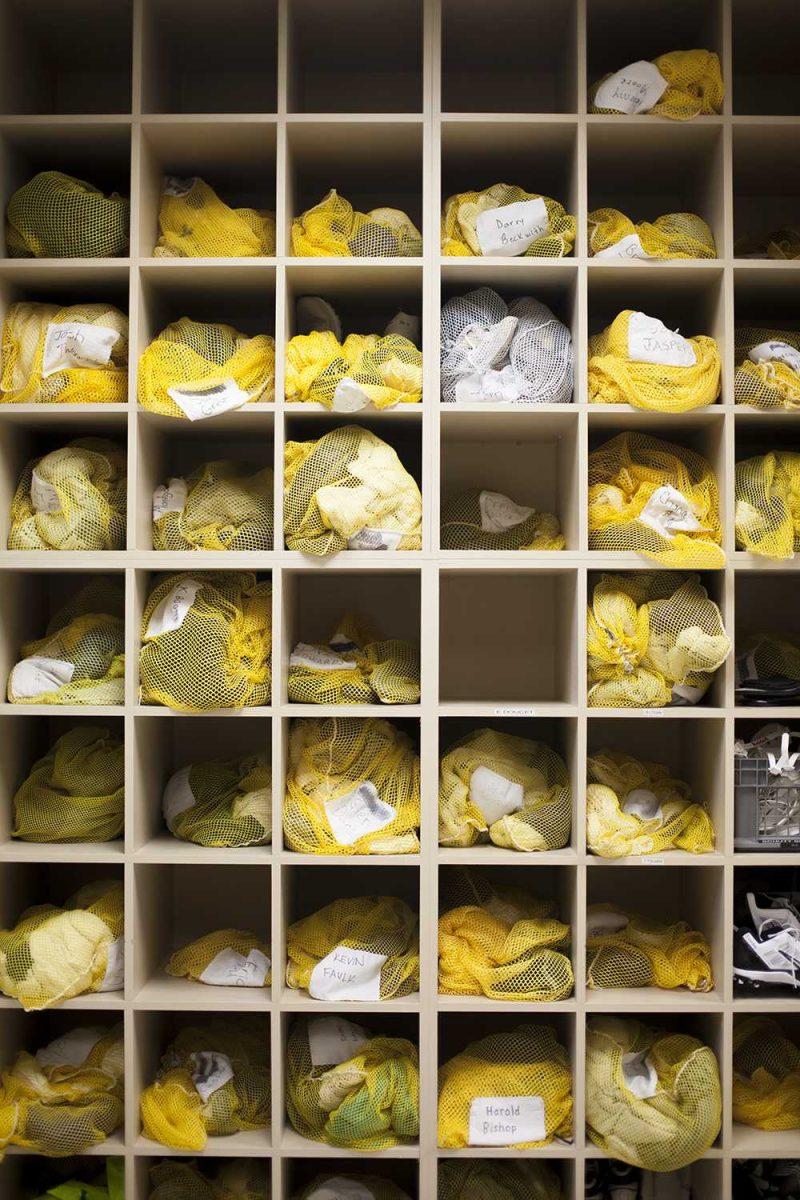For students unwilling to put time and money in their education, graduate school may not be the next life step. For the unsure, fellow students and faculty reveal that a higher education may be more of an investment than you thought.
THE DECIDER
Physics senior Hannah Gardiner knows the struggle of applying to graduate school. She has spent $855 applying to nine schools over the past several months.
Most schools require a Graduate Record Examination (GRE) at the price of $185 per try. Additionally, Gardiner must take a physics GRE, a subject test that costs $150 per exam. Depending on the school, Gardiner said that each application can cost anywhere from $40 to $80.
Gardiner said applying to universities for her undergraduate degree was significantly less involved. Unlike undergraduate applications, graduate schools require three letters of recommendation and internship experience. Other common factors like GPA and an essay also carry significant weight.
When choosing a graduate school, Gardiner said that reputation is not as important as cost and proximity to her family in Baton Rouge.
Gardiner also weighs the cost of graduate school with starting a family. After being accepted, it will take about eight years for Gardiner to graduate. She fears that when she is ready to start a family she will still be a student and won’t be able to financially support them.
However, Gardiner said that it is all worth it to her because, in the end, a Ph.D. could mean an additional $80,000 per year.
THE CANDIDATE
Hascal Bossier graduated from LSU with a Bachelor of Science degree in kinesiology in May and chose to attend LSU Health Science Center at Shreveport because it is a renowned physician assistant program.
She also cited cost as a motivator. Out-of-state programs are expensive and most PA programs only accept one out-of-state student per year.
While landing a job with only a master’s degree is possible, Bossier said completing the two-year program could mean an additional $70,000 per year.
The multi-step application process was tedious and expensive, Bossier said. The application fees totaled $275 for the eight-month process. Some of the requirements for entry were no less than 80 hours of patient contact, minimum 2.5 GPA and at least a 300 on the GRE. Bossier also said that without an exceptional essay, letter of recommendation, standardized test score and transcript, she would not have reached the interview part of the process. She said that those with the highest test scores and GPAs are interviewed before the other applicants are even considered.
“You have to be willing to give up a lot of time with the people that you love,” Bossier said.
Already she has sacrificed all free time to studying and community PA work. She will also miss many of her brother’s wedding festivities in Antigua because attendance is a vital ingredient to excellent grades.
“This graduate program is considered to be one of the most difficult in the shortest amount of time in the medical field,” Bossier said.
THE POSTGRADUATE
Rapides Parish special education worker Callie Martin recently earned her master’s degree in social work at LSU.
Unlike Gardiner, Martin only applied to one graduate program: LSU. She said that the application process was different because there were more requirements, such as an interview with the dean.
When researching graduate schools, Martin said the top two factors were location and the program’s licensing exam passing rate.
Martin’s coursework strictly focused on social work, with emphasis on grief counseling, crisis interventions and school social work. She enjoyed the classes at LSU graduate school dealing with adolescents and children with mental illness. There were more research papers, and Martin said she was required to hold an internship three days a week. Instead of producing a dissertation, she was given the option to take a generalized test on all of the subjects that she learned throughout her studies.
The median salary is $42,327 with a bachelor’s degree and $57,118 with a master’s degree. However, Martin said she chose to go to graduate school for the ability to provide more services such as counseling individuals and groups. The degree also gives her the opportunity to work toward a License for Clinical Social Work, allowing her to diagnose individuals with mental illness. As a teenager, her interest sparked when she started working at an afterschool program with mentally ill children.
“I loved being able to allow children with mental illness the opportunity to achieve the same social interaction that other peers had,” Martin said.
THE FACULTY
Jason Hicks advises graduate students on a daily basis. He is a professor and Graduate Studies Director for the LSU Graduate School psychology department.
In order to be admitted into most programs, students must score a minimum combined verbal and quantitative GRE of 297 and earn an overall prior GPA of 3.0 or greater.
The minimum combined verbal and quantitative GRE score is around 297 for admission. An overall prior GPA of 3.0 or greater is required, but meeting the minimum
requirements does not necessarily make one competitive for admission. The admissions process takes into account the student funding availability through Graduate Assistantships (GA) or other sources.
“I truly wish I had taken the time to do more undergraduate research when I was in college,” Hicks said.
The most important thing, he said, is for students to become familiar with research activities within their home department before applying. It not only helps understand the research process, but also builds relationships with professors who can write recommendation letters. Securing significant letters of recommendation from at least three sources enhances the applicant’s chances of being accepted.
Ultimately, however, the weight of each requirement depends on each member of the admission committee, he said. The psychology department has an independent admissions process. Advisers pick applicants with similar research interests.
Despite common assumption, Hicks said the psychology department does admit LSU undergraduates.
“This is the bottom line: where can you get the best experience and training among the available options? If this turns out to be in your backyard, then so be it,” he said.
Students funded by a Graduate Assistantship or similar University funds are generally prohibited from working other jobs, Hicks said. In addition, the school’s seven-year time limit on the pursuit of a Ph.D. makes time precious.Holding other jobs can be difficult.
Hicks said that his time at graduate school was more than a full-time job with 60 or more hours a week while sacrificing weeknights and weekends. He also said each challenge was usually paired with a reward.
“After a couple of years in my Ph.D. program, seeing my first article as an author go into print in a peer-reviewed journal was a wonderful feeling,” Hicks said. “This just fueled my desire to keep that momentum going.”
He said that going to graduate school is not always the right next step for psychology undergraduates. On one hand, he said if a student knows that he or she wants to be a college professor or work as a senior research scientist, then a graduate degree is necessary. On the other hand, the range of job opportunities that qualify with undergraduate degree in psychology is very broad and many specialties do not require a Ph.D.
“Because graduate school is both rigorous and time-consuming,” Hicks said, “we don’t generally encourage students to apply if they don’t have a strong motivation to succeed.”
Beyond Your Bachelor’s: Is Grad School Worth It?
By Raina LaCaze
November 11, 2013
p90x Workout
More to Discover







